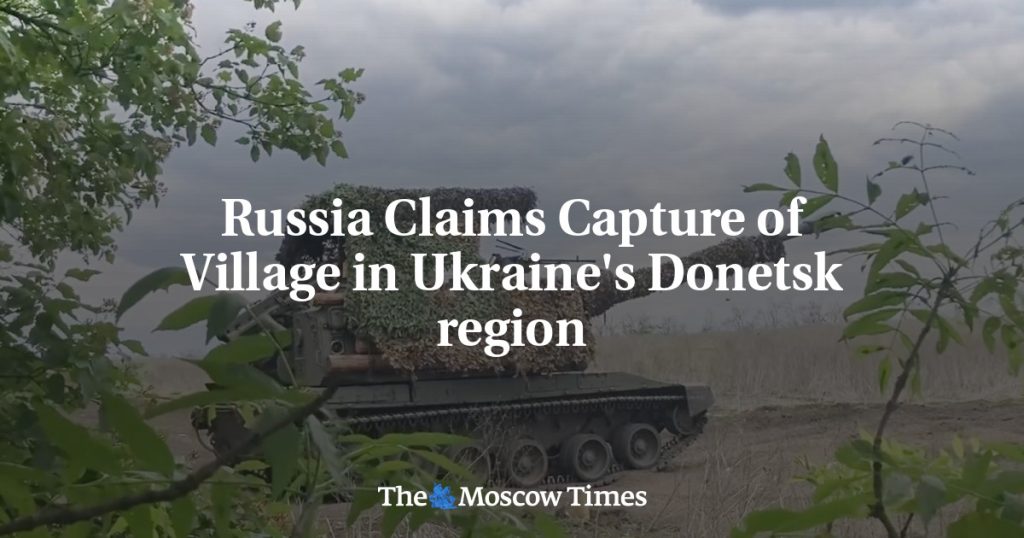Russia’s Defense Ministry announced its capture of Umanske, a small village in the Donetsk region of eastern Ukraine, as part of its ongoing military offensive in the area. This village, with fewer than 180 inhabitants, is located northwest of Donetsk, currently under Russian control. Russian troops have made significant territorial gains in the region, seizing 880 square kilometers of land this year. Ukrainian forces, facing overwhelming odds, have been struggling to maintain control, especially after Russia intensified its push in the city of Kharkiv. The city of Pokrovsk, located northwest of Umanske, is also under threat from advancing Russian soldiers.
Russian Defense Minister Andrei Belousov reported that Russian forces have made progress “in all tactical directions” in Ukraine. Ukraine is banking on the arrival of Western weapons to bolster its troops and regain control on the battlefield. President Joe Biden’s decision to allow Ukraine to use American-supplied weapons to target specific areas inside Russia has provided a much-needed boost to Ukrainian forces. This support from Western allies is crucial for Ukraine to defend itself against the Russian invasion and maintain its sovereignty. The conflict in Ukraine has drawn international attention, with many countries condemning Russia’s actions and offering support to the Ukrainian government.
The ongoing conflict in Ukraine has significant implications for global politics and security. The Russian military offensive in Donetsk and other regions of Ukraine has raised concerns about the violation of international norms and the use of military force to achieve political objectives. The situation in Ukraine has also strained relations between Russia and Western countries, leading to sanctions and diplomatic tensions. The involvement of Western powers, including the United States, in supporting Ukraine has added another layer of complexity to the conflict and raised the stakes for both sides. The conflict in Ukraine highlights the challenges of managing regional conflicts and balancing the interests of different countries in a complex geopolitical landscape.
The conflict in Ukraine has also had a humanitarian impact, with civilians caught in the crossfire and facing displacement, destruction of infrastructure, and loss of life. The capture of Umanske by Russian forces is a reminder of the human cost of the conflict and the need for a peaceful resolution to the crisis. The international community has a responsibility to protect civilians in conflict zones and ensure access to humanitarian aid and support. The ongoing violence in Ukraine underscores the importance of dialogue, diplomacy, and conflict resolution mechanisms to address the root causes of the conflict and prevent further escalation.
As the situation in Ukraine continues to evolve, there is a growing need for diplomatic efforts to find a peaceful solution to the conflict. The international community must work together to support Ukraine, uphold international law, and promote stability and security in the region. Russia’s actions in Ukraine have drawn widespread condemnation and raised questions about the principles of sovereignty and territorial integrity. The conflict is a test of the international community’s commitment to upholding these principles and supporting countries facing aggression and external threats. The resolution of the conflict in Ukraine will require dialogue, negotiation, and compromise to address the underlying issues and achieve a sustainable peace in the region.


